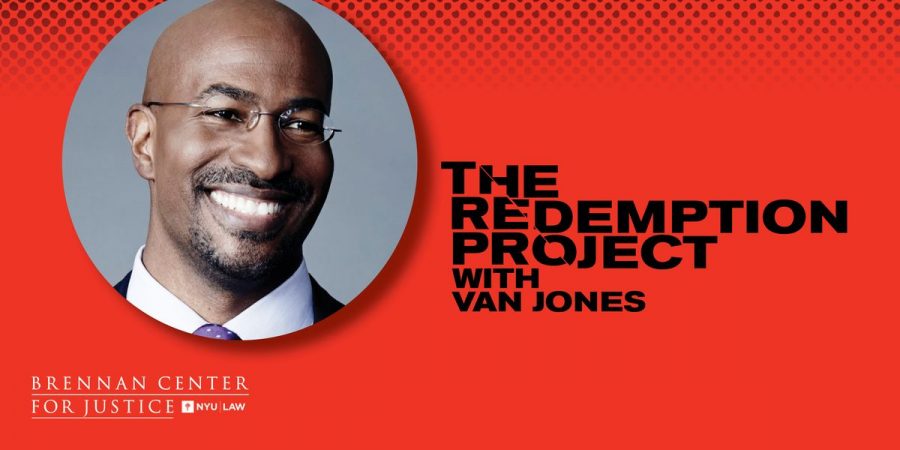CNN commentator Van Jones spoke about his docuseries on the criminal justice system and the need for reform in an event at the NYU School of Law Tishman Auditorium on Monday.
Jones is the co-founder of Cut50, an organization that aims to cut the prison population in half, and the CEO of Reform Alliance, a justice initiative that lobbies for more lenient probation and parole legislation. He is also the host of CNN’s “The Van Jones Show,” which discusses U.S. politics and current events with an array of prominent politicians and celebrities as guests. Jones has advocated for criminal justice reform for more than 25 years.
Organized by the Brennan Center for Justice, the event was moderated by CNN legal analyst Joey Jackson and included a discussion between Jones and Jason Cohen, executive producer and co-creator of their docuseries “The Redemption Project.”
When Jones first took the stage, he emphasized that in order to fix the criminal justice system, it should be conducted more humanely.
“The opposite of criminalization is humanization,” Jones said.
Peter Robin, who attended the event, asked a question about humanizing the criminal justice system. Robin first admitted that he previously committed a crime and then talked about how he’s creating a new non-profit that would allow formerly incarcerated people to loan cars for family emergencies.
“How do we humanize people?” Robin said. “Despite all of the work I’m doing, when you google my name, you see the fact that I committed a felony. There’s all of these negatives and none of the positives.”
Jones told Robin to continue the good work that he’s doing and told him that he would be a good role model for other people.
Jackson asked Jones how he was able to pass The First Step Act while working with Trump administration advisor Jared Kushner. The act attempts to reduce the rate of repeat offenders in the U.S. prison population.
Kushner wanted to work with Jones on the act because his father, Charles Kushner, was sentenced to fourteen months in federal prison for witness tampering, illegal campaign contributions and tax evasion. Given his experience, Kushner wanted to help others who have incarcerated family members.
After Kushner expressed interest, Jones was invited to a meeting with him and other Republicans to address possible improvements that could be made. When Republicans at the meeting were insistent about what offenders would not apply to the bill, Jones noted how Kushner responded to their sentiments.
“[Kushner] goes, ‘I think you’re wrong. The question isn’t whether someone was violent when they went to prison. The question is, ‘Are they ever coming home?’ We should work hard to make sure every single person gets to come home,” Jones said.
In addition to the discussion and Q&A, Jones showed an advanced screening of his new CNN docuseries called “The Redemption Project.”
Cohen explained how his team captured these stories through film.
“There was a lot of coordination with the Department of Corrections in order to get access and with people who were willing to share their stories,” Cohen said. “We were there to document, but I give more credit to people doing the work.”
Kip Kirkendall, one of the attendees of the event, commented on Jones’ passion for criminal justice reform that was shown in the docuseries.
“It was so moving, hearing about the concept and how Van Jones and his team were able to execute it,” Kirkendall said. “I saw how moved he was by the work he was doing, and he was incredibly genuine.”
Regardless of political parties or ideologies, Jones said that people should have empathy toward each other.
“I feel like the culture has flatlined,” Jones said. “The brain is functioning, but the heart is dead. I’m trying to just resuscitate that human heart. We can have different politics in our head, but we should have the same politics of the heart. We should care about each other.”
Email Alexandria Johnson at [email protected].























































































































































